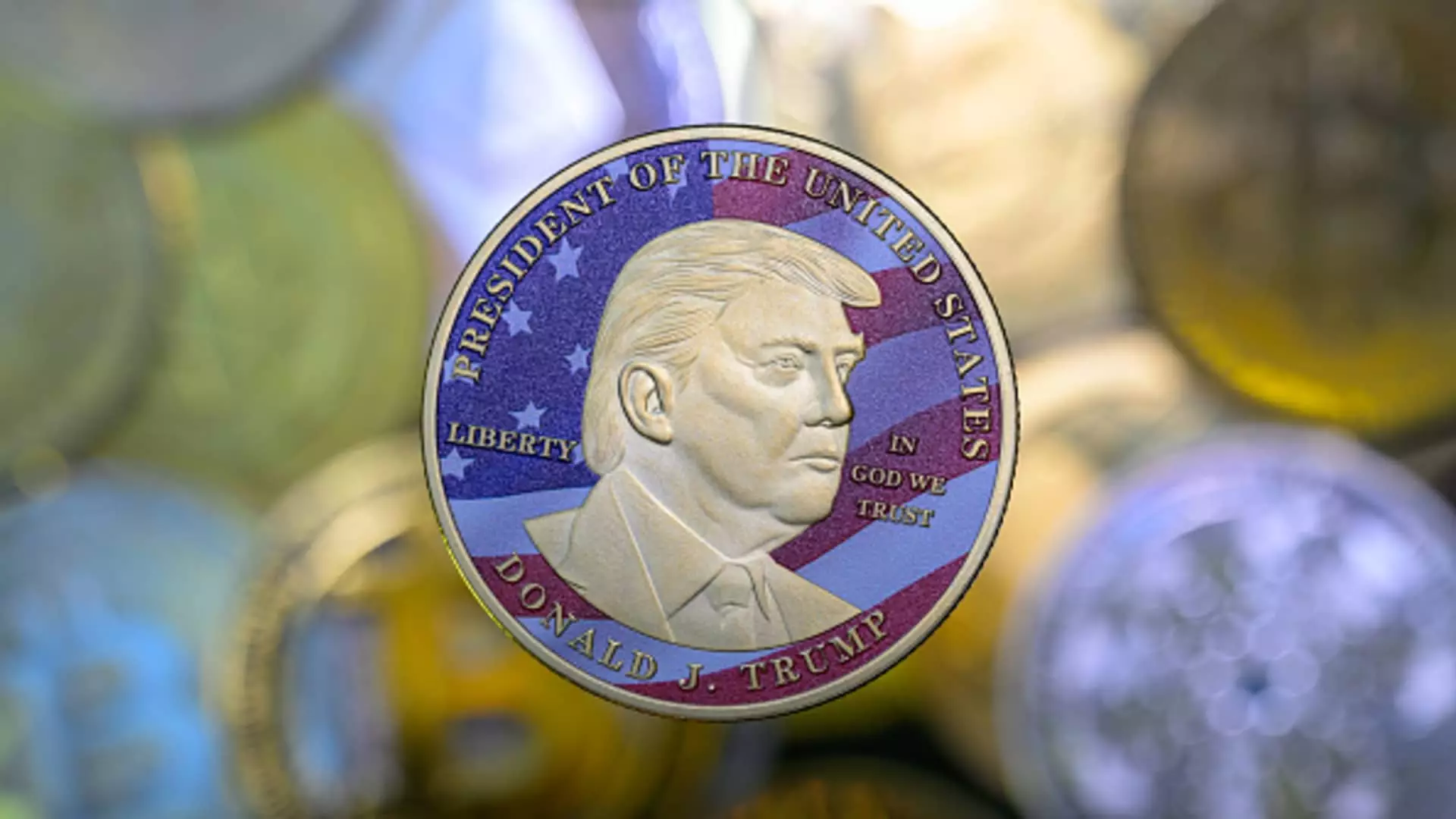The recent uproar surrounding President Donald Trump’s private dinner invitation to the top 220 holders of his controversial $TRUMP memecoin stirs deeply embedded concerns about the ethical integrity of American leadership. Senators Adam Schiff and Elizabeth Warren, distinguished Democrats, have voiced their alarm over what they term a “pay to play” scheme disguised as a promotional event. The situation raises a myriad of questions about the intertwining of politics and personal profit, and one must wonder: Is this just business as usual, or a symptom of a deeper rot at the heart of our political system?
The Senators have requested an ethics investigation from the U.S. Office of Government Ethics, pushing for clarity on whether President Trump has crossed legal lines by leveraging his presidential influence for personal financial gain. Such actions—if proven—are not just questionable; they make mockeries of the ethical standards we expect from our leaders. Schiff and Warren’s concerns go beyond mere political squabbling; they penetrate the very fabric of American democracy itself.
The Profit Motive: A Coin’s Meteoric Rise
What is perhaps the most alarming aspect of this development is the timing and the resultant financial implications for Trump and his family. Following the announcement of this dinner, the value of the $TRUMP coin skyrocketed by over 50%, translating to a profit influx exceeding $100 million. This is where ethics and capitalism collide, creating a volatile mix that could potentially funnel political power into individual wallets—a concerning precedent to set in any democracy.
While one may argue that the principles of a free market allow individuals to capitalize on investments, the ethical complexity drastically changes when the facilitator of that investment is also a sitting president. The very idea that significant players in Trump’s financial ecosystem could be reaping rewards from definitive political access should rattle any serious thinker, irrespective of party lines. This intersection of political clout and financial gain presents a slippery slope that could, if unchecked, redefine the relationship between money and political power in America.
The Flawed Ethical Framework: A President Above the Law?
Adding to the gravity of this scenario is the recognized impotence of the Office of Government Ethics, especially when it comes to enforcing rules against a sitting president. The institution has advised presidents to adhere to certain ethical standards voluntarily, yet has no enforceable power to police those standards effectively. This begs the question: How can the American people trust that their president will not exploit his position for financial gain when the governing body meant to police him lacks the authority to do so?
Furthermore, Schiff and Warren’s apprehensions gain additional weight when you consider the potential affiliations of some $TRUMP investors with foreign entities. They argue that this opens the floodgates to a host of ethical dilemmas, especially if investors seeking political access also possess ties to parties with vested interests in U.S. policies. If President Trump can deliver privileges in exchange for investments, where does that leave the rest of American society that does not have such means? The seeming normalization of this conduct threatens to undermine the foundational premise of government being by the people and for the people.
The Future of Ethics in Politics: A Call to Action
In the face of these stark realities, it becomes essential to demand a comprehensive reevaluation of ethics in politics, particularly around the concept of presidential accountability. If we permit this kind of behavior to continue unchecked, we risk creating a political atmosphere where monetary influence eclipses the foundational democratic idea of equal representation. It would be naïve to dismiss the Senators’ concerns as mere partisan theatrics; real lives and futures hang in the balance of these ethical gray areas.
The questions raised by the $TRUMP coin saga represent an urgent call to action for ethical reform in American governance. A robust examination of both legal frameworks and ethical expectations is necessary to shield our political institutions from potential corruption. The American people deserve transparency and integrity from their leaders, not to mention a government that operates unchecked for personal financial benefit. The stakes could not be higher in defending the principles of democracy from those willing to barter them away for coin—a principle that transcends party lines and partisan politics.

